|
|
|
|
| |
|
Survival & Primitive Skills
Survival
Non-primitive Living in the Wilds Other Survival Books
Shelters
Hunting Plants for
food/medicine Animals for food
Flint Knapping Tanning Boats, canoes
Other Skills Stories
|
| |
| Survival |
| |
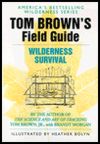 |
Tom Brown's Field Guide to Wilderness Survival
by Tom Brown Jr.
1983, ISBN 0-425-10572-5
A primer for wilderness survival without modern tools, this book
covers topics from one's attitude in a wilderness survival situation,
through the "sacred four" of shelter, water, fire, food, to
tools and crafts. |
|
| |
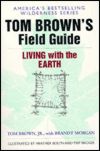 |
Tom Brown's Field Guide to Living With the Earth
by Tom Brown Jr.
1984, ISBN 0-425-09147-3
This book continues where the previous one left off. It
outlines techniques for living in a "primitive" lifestyle
indefinitely, in harmony with the earth.
From the Introduction: "Living with the earth in its
fullest sense is much more than mere survival. It is also more
than the frenzy and desperation that passes for life in much of the
modern world. Living with the earth is an intimate belonging,
like the connectedness of a well-rooted tree." |
|
| |
 |
 |
Primitive Wilderness Living and Survival Skills
Primitive Wilderness Skills, Applied and Advanced
by John & Geri McPherson
published by Prairie Wolf
The first book was originally published as a series of small pamphlet-type books, now brought together all in
one large book. Tons of photographs and diagrams. Covers brain tan buckskin,
fire, cordage, bow & arrow, traps, cooking, containers, tools, shelters. These
folks also have videos that you can order.
The second volume is also extremely useful.
Visit their website at www.prairiewolf.net. |
|
| |
|
They also have a series of videos: |
|
|
| |
| |
|
|
| |
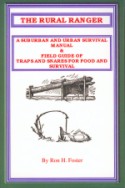 |
The Rural Ranger - A Suburban and Urban Manual & Field Guide of Traps and Snares for Food and
Survival
by Ron H. Foster
Self published.
Ron contacted me some time ago asking to use some of my photos from this website in a book he was writing. Ron's book has a number of photos of traps from the site. This 190-page book has many interesting ideas for survival.
"The Modern Day Survival Primer For Solving Modern Day Survival Problems! This book will teach you the techniques to not just survive, but to use ingenuity and household items to solve your problems scientifically with a bit of primitive know how thrown in. A complete and detailed section utilizing explicit drawings and easy to understand photographs covers thoroughly the topic of survival trapping using Modern Snares, Deadfalls, Conibear Traps, and Primitive Snares. This book is dedicated for long term survival in the country or the suburbs to insure you survive and thrive! Build a solar oven or pasteurize water its all in here! Catch your dinner, then cook it or preserve it too! Food procurement is the name of the game along with purified water in a survival or disaster situation."
Visit Ron's website at www.survival-trapping-fishing.com
The book may be ordered online at
http://www.lulu.com/content/17107 |
|
| |
 |
Outdoor Survival Skills
by Larry Dean Olsen
ISBN 1-55652-323-8, published by Chicago Review Press
Larry Dean Olsen is to the west what Tom Brown Jr is to the east, in terms
of survival skills. |
|
| |
 |
Wildwood Wisdom
by E. Jaeger
ISBN
A reprint of a book originally published in 1947. Covers all aspects of wildness
survival lore. Tons of illustrations. |
|
| |
 |
The Psychology of
Wilderness Survival
by Gino Ferri
ISBN 0-9694132-0-3, published by the author.
Gino Ferri runs an outdoor wilderness survival program at various
community colleges around Ontario (Canada).
Website:
www.survivalinthebushinc.com. |
|
| |
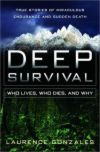 |
Deep Survival:
Who Lives, Who Dies, and Why: True Stories of Miraculous
Endurance and Sudden Death
by Laurence Gonzales
What impels people to risk their lives by
climbing mountains or deep-sea diving? What confluence
of forces leads to drastic accidents? Why do some people
survive disasters while others perish? A renowned
journalist intrigued with risk, Gonzales conducts an
in-depth and engrossing inquiry into the dynamics of
survival. Relating one hair-raising true story after
another about wilderness adventures gone
catastrophically wrong and other calamities, Gonzales
draws on sources as diverse and compelling as the Stoic
philosophers and neuroscience to elucidate the
psychological, physiological, and spiritual strengths
that enable certain individuals to avoid fatal panic and
make that crucial "transition from victim to survivor."
People who survive being lost or adrift at sea, for
instance, pay close attention to their surroundings and
respect the wild. Gonzales also notes that survivors
think of others, either helping a fellow sufferer or
rallying to outsmart death in order to spare loved ones
anguish. The study of survival offers an illuminating
portal into the human psyche, and Gonzales,
knowledgeable and passionate, is a compelling and
trustworthy guide |
|
| |
| Non-Primitive
Living in the Wilds |
| |
| |
|
|
| |
 |
Bush Craft
by Mors L. Kochanski
ISBN 0-919433-51-0, published by Lone Pine Publishing
Lots of detailed drawings, this seems to be a good book on this type of wilderness
survival skills.
"After reading Northern Bush Craft (not a survival book but
a living book) and practicing his techniques I would say Mors ideas
are superior especially for northern area. I attended a week
long session with Mors K. last summer and I learned more in the the
first hour than I did in a whole day at Tom Brown's course. He
doesn't talk or brag, he demonstrates and is able to explain. Look
at his book closer and try it." --Review
by "Joe"
|
|
| |
Books by Bradford & Vena Angier:
In the 1950s the Angiers left Boston behind and headed for a cabin in the
wilderness of Canada's Peace River country. They wrote a series of books on their
life there. Some of their books tell their story and adventures, and some outline
techniques for living in the wilderness.
- We Like it Wild (story)
- At Home in the Woods (story)
- How to Stay Alive in the Woods
- Survival With Style
- How to Build Your Home in the Woods How to build log cabins,
camping shelters, and rustic furniture. This is axe work, not primitive living.
Profusely illustrated with drawings and plans.
- How to Live in the Woods on Pennies a Day: Cutting Out to the North Woods for
the Good Life Forever or for Awhile This book details how to search
out your wilderness home, but since it was published in 1972, much of the info in this
book may be outdated. Nevertheless it is still a good reference if you can find it.
- One Acre and Security: How to Live Off the Earth Without Ruining It
Includes a lot of info on various small-scale farming techniques. Lots of
illustrations.
- The Art and Science of Taking to the Woods: A Complete Encylopedia of Outdoor
Living
by C.B. Colby & Bradford Angier. This is not a guide to primitive living, but
rather to camping, canoeing, and hiking. Lots of illustrations
- Home in Your Pack
|
| |
| |
|
|
| |
| Other Survival
Books |
| |
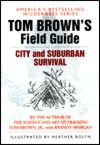 |
Tom Brown's Field Guide to City and Suburban Survival
1984, ISBN 0-425-06815-3
This book completes
the survival picture by covering survival in cities, amongst the works of humans.
Tom applies the "sacred four" of wilderness survival to an
urban environment.
From the Introduction: "The last thing I want to do is
dwell unnecessarily on disasters and discomforts.....I have not
limited the discussions in this book to emergencies and
disasters. I have put just as much (if not more) emphasis on
understanding the city environment, living frugally and thoughtfully,
knowing how things work, gaining confidence and control in one's life,
and becoming familiar with the machines and systems that are so much a
part of it. This, too, is a logical extension of the survival
philosophy. For survivalists do not feel like victims or cogs in
a machine. They feel at home in their environment, wherever it
might be."
|
|
| |
 |
Fugitive -
How to Run, Hide, and Survive
by Kenn Abaygo
ISBN: 0873647548An interesting pair of books from Paladin
Press by Kenn Abaygo...This guy definitely does not like Tom Brown!
Although these books are oriented towards those on the run as a fugitive,
there's some interesting ideas for the ordinary survivalist:
From the publisher's website: "If
you're serious about going on the lam, this book may just save your
life. Learn to build an evasion shelter, erect path guards, lose a
pack of tracking dogs, enter the "network" of people
willing to assist evaders, apply natural camouflage and utilize
primitive first aid skills. This unique manual exposes you to
possibilities you never even considered." |
|
| |
 |
Advanced Fugitive -
Running, Hiding, Surviving, and Thriving Forever
by Kenn Abaygo
ISBN: 0873649338
From the publisher's website: "In
this companion to Fugitive: How to Run, Hide, and Survive, you'll
learn the advanced evasion techniques successful fugitives have used
to get gone and stay gone for long periods of time - perhaps forever
- and you'll benefit from their experience and their mistakes."
On page 91, the author expresses his disdain for
Tom Brown:
"There's no hocus-pocus, no Tom Brown "Tracker" bush-
or tree-spirit worshipping -- none of that crap. As a matter of
fact, forget all that communing-with-nature, tree-hugging stuff. It
might get you dead."
|
|
| |
| |
|
|
| |
| Shelters |
| |
 |
Shelters, Shacks and Shanties
by D.C. Beard
ISBN 0-89815-482-0, published by Shelter Publications
Lots of different types of shelters and cabins, most using axe and saw.
Fascinating old-style book full of bush lore re shelters. |
|
| |
| Hunting |
| |
 |
The Traditional Bowyer's Bible, Volume 1,2,3
by lots of authors
ISBN volume 1: doesn't have one??, volume 2: 1-55821-207-8, volume 3: 1-55821-311-2
The definitive guides to primitive archery. |
|
| |
 |
Indian Fishing - Early Methods on the Northwest Coast
by Hilary Stewart
ISBN 0-88894-332-6
In over 450 drawings and 75 photographs, Hilary details how Native peoples fished in times
of old. The drawings are detailed and extremely interesting. Excellent book. |
|
| |
| |
|
|
| |
Plants - for food & medicine
For books on identifying plants, see the Booklist
- Nature & Tracking
- Plants (identification) section |
| |
 |
Tom Brown's Guide to Wild Edible and Medicinal Plants
1985, ISBN 0-425-10063-4
Unlike most field guides, this one has a story of some sort about each plant, usually
about an experience Tom had with it, or a story from Stalking Wolf
("Grandfather") about the plant. The first part of the
book deals with how to approach nature in an attitude of harmony, to
gather the plants with a caretaking attitude. The second part
covers the edible and medicinal uses of 44 different plants.
In the Introduction, Tom shares with us a life-changing story in
which he realizes that taking the life of a plant to feed ourselves is
not much different than taking the life of an animal for the same
purpose. |
|
| |
 |
Edible Wild Plants
(Peterson Field Guide)
by Lee Allen Peterson
ISBN 0-395-31870-X
Excellent. |
|
| |
 |
Medicinal Plants
and Herbs (Peterson Field
Guide)
by Steven Foster & James A. Duke
ISBN 0-395-46722-5
Excellent. |
|
| |
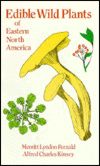 |
Edible Wild Plants of
Eastern North America
by Merritt Lyndon Fernald & Alfred Charles Kinsey
published by Dover
Originally published in 1958. A comprehensive guide. |
|
| |
 |
It Will Last
Forever: Traditional Yosemite Indian Acorn Preparation
by Beverly Ortiz, as told by Julia Parker
ISBN 0-930588-45-2, published by Heyday Books
I'm sure that a lot of the techniques could be applied to other areas
and types of acorns. Lots of photos. |
|
| |
 |
How Indians Use Wild Plants for Food, Medicine & Crafts
by Frances Densmore
ISBN 0-486-23019-8, published by Dover Books
This book was originally published in a different form in 1928. It is quite detailed
and scientific, with tables, photos, and explanations. A classic work. |
|
| |
 |
Sacred Plant Medicine
by Stephen Harrod Buhner
This is a truly fantastic book, and the authors respect and dedication
show in each word. The first half of the book is about establishing a
sacred relationship with plants and using them in a sacred way. There is
also a chapter on how to use the plants (make tinctures, etc.) and an
excellent discussion of 18 plants and their medical uses. There are
references to plants other than the 18 scattered throughout. Also included
are plant-specific songs, prayers, origin myths, and tales of usage from
five tribes in North America: Hupa, Catawba, Sioux, Kwakiutl, and Ojibwa.
Here is the the Table Of Contents:
The Sacred and the Earth, To be Healed by the Earth, Visions of Sacred
Plant Medecine, The Sacred Song of a Plant, Making Sacred Relationship
With Plants, Healing in a Sacred Manner, Digging for Medicine: The
Wildcrafting of Medicinal Plants, Making Plants into Medicine: The
technology of Herbalism, Ceremony: Making Deeper Relationship with Plants,
Four Sacred Plants of the Rocky Mountain Region: Their Sacred Qualities,
and Uses as Medicine, A Short Compendium of Plants and Their Sacred Uses,
The Birth of Gaiia, Suggested Readings and Herbal Sources, Wildcrafting
Ethics and Guidelines.
(reviewed by someone on the Tracker
email list) |
|
| |
| |
|
|
| |
| Animals for food |
| |
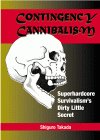 |
Contingency Cannibalism:
superhardcore survivalism's dirty little secret
by Shiguro Takada
ISBN: 1-58160-025-9, published by Paladin
Press
A book for you hard-core survival types! This twisted,
tongue-in-cheek look at cannibalism as a last-resort survival option
analyzes real-life case studies and historical episodes of
cannibalism. Then it examines the hard-core decisions and gruesome
details one must know in order to partake in this grisly practice.
Recipes included. "For entertainment purposes only". |
|
| |
 |
Unmentionable Cuisine
Calvin Schwabe
Details of eating just about anything that moves on this Earth,
including animals, reptiles, insects, etc. Based on research into
many cultures the world over, this book includes authentic recipes
and cooking methods. |
|
| |
| |
|
|
| |
| Flint Knapping |
| |
| |
|
|
| |
 |
Flintknaping - Making and
Understanding Stone Tools
John C. Whittaker |
|
| |
 |
Caught Knapping (video) |
|
| |
 |
The Art of Flintknapping
D.C. Waldorf |
|
| |
 |
An Introduction to Flint Knapping
(video)
Bill Metcalfe |
|
| |
| |
|
|
| |
| Tanning |
| |
 |
Wet-Scrape Braintanned Buckskin
by Steven Edholm & Tamara Wilder
ISBN 0-9654965-4-6, published by Paleotechnics
A pretty detailed book, lots of photos and drawings to help you understand what you're
doing and why. |
|
| |
 |
Deerskins Into Buckskins: How to Tan With Natural Materials
by Matt Richards
ISBN 0-9658672-0-X
A nice book, full of illustrations and photos. |
|
| |
| |
|
|
| |
| Boats, canoes |
| |
 |
The Bark Canoes and Skin Boats of North America
by Edwin Tappan Adney & Howard Chapelle
ISBN 1-56098-296-9
Very detailed drawings and numerous photos of primitive bark and skin boats. |
|
| |
 |
Building a Birchbark Canoe
by David Gidmark
ISBN 1-55068-053-6, published by Stackpole Books
Detailed descriptions of the building of birchbark canoes, from several different areas of
Canada. |
|
| |
| |
|
|
| |
| Other |
| |
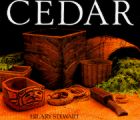 |
Cedar
by Hilary Stewart
ISBN 1-55054-406-3
A wealth of detailed information, and tons of drawings and photographs about practically
every aspect of the use of cedar by the Northwest coastal indigenous peoples.
Excellent. |
|
| |
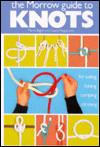 |
The Morrow Guide
to Knots
by Mario Bigon & Guido Regazzoni
ISBN 0-688-01226-4, published by Quill
This 250 page book includes practically every knot ever tied, all
illustrated with clear colour photos. |
|
| |
 |
Natural Basketry
by Carol and Dan Hart
ISBN 0-8230-3155-1, published by Watson-Guptill
Wicker, splint, coiled, and twined baskets. |
|
| |
| |
|
|
| |
| Survival Stories |
| |
 |
Alive
Piers Paul Read
The true story of the survivors of a plane crash high in the Andes
Mountains. |
|
| |
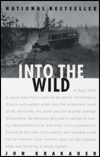 |
Into The Wild
Jon Krakauer
A true story of a young man who headed into the wilds of Alaska and
died of starvation. |
|
| |
 |
The Lure of the
Labrador Wild
Dillon Wallace
The true account of an ill-fated expedition into the remote interior
of Labrador (Canada) in 1903, written by one of the survivors. A
great story of survival. |
|
| |
|
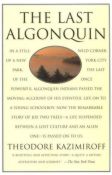 |
The Last
Algonquin
by Theodore Kaziminoff
The story of Joe Two Trees, who is the last of
his tribe of the Algonquins. Theodore has done an
excellent job of preserving the story given to him by
his father and keeping the memory of Joe Two Trees and
the Algonquin Indians alive. Highly recommended. |
|
| |
|
|
| |
|
|
|
|